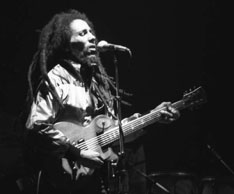- Question: How do the ingredients in e-cigarettes and vaporizers affect respiratory health? - August 16, 2019
- Bad Technique and Vocal Injury - January 9, 2019
- Is Edible Marijuana Dangerous for the Voice? Myths Dispelled - December 18, 2018
- Surprise! You have a hemorrhage - January 31, 2018
- Graves’ Disease: Treatment Overview - September 25, 2017
- Adele and the Stigma of Vocal Injury - July 11, 2017
- Vocal Curbside Consult: How does the thyroid affect the voice? - May 16, 2017
- Vocal Curbside Consult: How do hormones affect the voice? - May 3, 2017
- Vocal Curbside Consult: How do emotion and stress affect the voice? - April 17, 2017
- Vocal Curbside Consult: Vocal Recovery After Illness - April 7, 2017
 Marijuana use is not uncommon in the singing and performing community. However, with many states legalizing marijuana, use may be increasing. One of the most frequently asked questions I get is about the potential effect of marijuana on the voice.
Marijuana use is not uncommon in the singing and performing community. However, with many states legalizing marijuana, use may be increasing. One of the most frequently asked questions I get is about the potential effect of marijuana on the voice.
I’ve written about this previously in an article that focused on smoking marijuana and the associated risks to the voice. Smoking anything is risky to the vocal cords, as it induces laryngitis which increase the risk of vocal bruising and permanent injury. Further, lung irritation and chronic bronchitis are common in those who smoke marijuana. Many singers have worked around this by ingesting (eating or drinking) marijuana instead of smoking it, and this does indeed appear to come with a lower risk to vocal health. Despite this evidence, a theory has been circulated that marijuana use in any form causes dilation of blood vessels and therefore results in the same risk of vocal bruising as smoking. This theory assumes two fundamental points which must be confirmed before we can draw any conclusions:
- Orally ingested marijuana results in dilation of blood vessels
- Dilation of blood vessels increases the risk of vocal bruising
If those points are true, then it would fundamentally change how I counsel my singers and professional voice user patients. I was glad to have an opportunity to query the literature and revisit my conclusion that ingested marijuana was safer. Perhaps this new theory was correct?
 I did an extensive literature search and found a recent article which reviewed the existing literature on the subject. Though published in an open source journal, the publications that were referenced were credible. The following information was found:
I did an extensive literature search and found a recent article which reviewed the existing literature on the subject. Though published in an open source journal, the publications that were referenced were credible. The following information was found:
- There is no clear conclusion about the effects of marijuana/THC on vasculature. This article reviewed 112 articles that had been published in peer- reviewed journals and still said the literature is not definitive.
- However, there is significant “evidence for vasoconstrictive effects of cannabinoid administration.” This means there is evidence that blood vessels constrict (get smaller). This is in direct opposition to the above theory that edibles dilate blood vessels in the vocal cords. One must assume that the above theory was not based upon current research.
- The review article also stated “Early experimental results in the rat have hinted to a vasoconstrictive activity of THC comparable to that of norepinephrine (Adams et al., 1976). The fact that a simple vasodilation does not account for all of the substances’ complex influences on cardiovascular tone was strengthened by the description of the “triphasic” or “triple” effect (Siqueira et al., 1979; Varga et al., 1996; Malinowska et al., 2012).”
Again, this reinforces that the effects are complex, may be dilation or constriction of blood vessels but that evidence points to constriction. - There is also no proof that blood vessel dilation increases the risk of hemorrhage. For example, Viagra, a drug that works because it dilates blood vessels, is listed as having no effect on the voice by The National Center for Voice and Speech
Both of the premises were therefore incorrect. There is no evidence that ingestion of marijuana increased the risk of vocal hemorrhage.
Dispelling vocal myths is vitally important to prevent singers from misguided advice. Misinformation often spreads when one person’s opinion is portrayed as fact without substantiating research. Clinician intuition is important but the reader has to be able to differentiate fact versus opinion. Those in the practice of giving advice need to be transparent about whether or not our advice is research and fact-based, we must revisit our opinions, review existing literature, and keep discourse active. Based on this process, the evidence clearly supports that ingested marijuana poses no risk of vocal hemorrhage and is far safer than inhaled.



